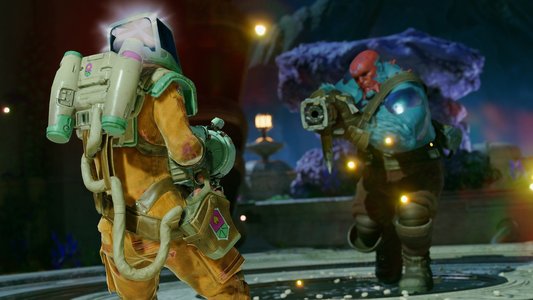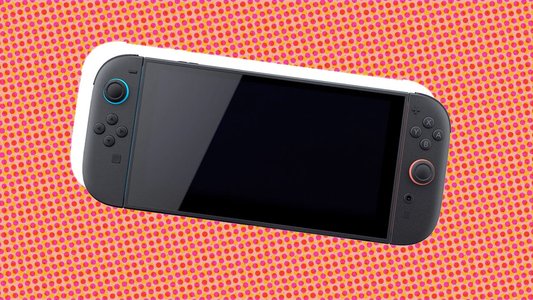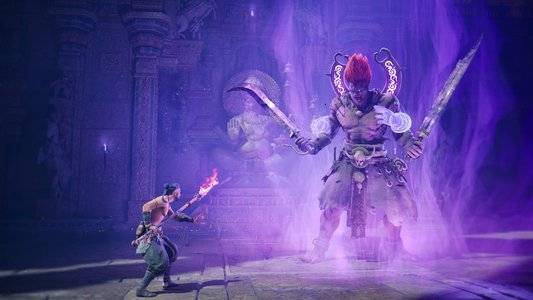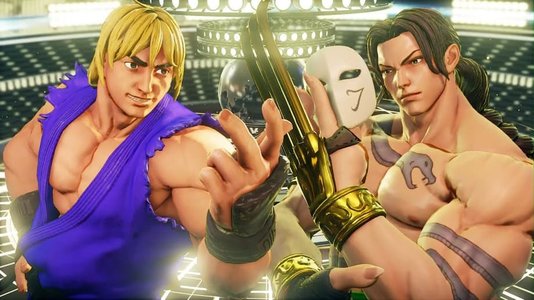[In a Gamasutra opinion piece, Connor Cleary examines approached in creating sequels to well loved franchises -- weighing their respective strengths and pitfalls.] Your shiny game mag of choice shows up in your mailbox, you flip through and find a preview for, let's say, Zelda: The Skyward Sword. Your brain quickly skims through the hours and hours that you've spent in your lifetime playing various other Zelda games. Understandably, you become giddy with anticipation. What is it about a new installment from a beloved series that makes our hearts beat a little faster; that makes us feel like a little kid again, running down to the game store with a pre-order receipt and butterflies in our stomach? There are many legacies in the video game world, some have retained their status as juggernauts, while some have fallen from grace and continue to limp along in the periphery. But in either case, we often still feel a surge of emotional nostalgia when we hear about a new title from one of these legacy series. But as much as a legacy title can be a cash-cow for developers, it must also be handled with care. Because of gamers' emotional attachment, a disappointing update can cause bitterness, as if the developer has profaned a sacred memory. In other words, its greatest strength – the emotional attachment of gamers – is also its greatest potential danger. This poses an interesting challenge for developers. They must find a way to keep a series interesting and original, while simultaneously remaining true to its traditions. If the new installments lack innovation gamers might feel ripped off, like the same game was thrown in a new package and sold to them a second time. On the other hand, if the studio strays too far from tradition they risk losing the essential elements of nostalgia and familiarity. It seems that when it comes to the game series there are two poles on either end of the development philosophy. On one hand, you have games that adhere very tightly to their canon and mechanics that evolve very slowly – and are sometimes forced to make a leap due to advances in gaming technologies – this is a pole that I will call the 'Direct Descendant'. Meanwhile, the polar opposite to this theory is the nearly complete reinvention of a game series with each installment – which I will call the 'Spiritual Successor'. To further explore this spectrum we will look at examples from each extreme. Needless to say, there are too many legacy franchises in gaming to address them all, and what follows will be a necessarily and admittedly incomplete analysis of only a handful of juggernauts. Our first example, everyone's favorite blue robot, Mega Man, remained squarely seated for a long time on the 'Direct Descendant' pole before slowly starting to branch out. This is a series that, with barely any alterations or additions, managed to remain enjoyable through its first ten installments. While mechanics like the Rush Jump and Rush Jet were slowly added in, and each game included a new set of bosses and respective weapons, the overall experience was still nearly identical. Even through the next evolutionary leap in the series, the Mega Man X titles still relied on the same basic framework, adding somewhat minor elements like permanent upgrades beyond those acquired through boss fights, and occasionally large additions like new playable characters to choose from. The repetitive nature of the early chapters in the Mega Man series were not a hindrance because – much like the Mario games – the mechanics were timeless so that they didn't require much tweaking to remain relevant and fun. Slightly further down the spectrum we find the quintessential poster-child for the video game legacy, the ubiquitous Mario, designed by Shigeru Miyamoto. Taking spin-offs like Yoshi and Wario games into consideration, the humble Mario Bros. was the progenitor for over 200 games. (Accepting, of course, Mario's first incarnation as Jumpman opposite the fierce titular villain Donkey Kong.) To this day, a new Mario game will be invariably met with high anticipation, and decent sales figures are assured. The most recent incarnations of the mustachioed plumber are Super Mario Galaxy 2 and New Super Mario Bros. Wii, the latter of which seems to have outsold the former in its first few days on sale. These numbers are especially interesting because the larger sales went to the more traditional, retro-style title. The Mario games have continued to be successful despite often repetitive mechanics and almost invariably similar storylines for a few reasons. Nintendo has skillfully retained strong ties to the Mario canon by never brushing aside fixtures like Peach, Bowser, Toadstool, Stars, Goombas, Koopas, and so on, these assure the gamer will have a positive association with the game world. They have managed to balance perpetual evolution of gameplay with retention of trademark mechanics. But most importantly, they are always fun. Our next example also comes from Mr. Miyamoto: The iconic hero-in-green, Link and his perpetually distressed damsel, the princess Zelda. Much like Mario, The Legend of Zelda games are loved the world over. It is series that simultaneously adheres to its predecessors while remaining innovative and unexpected with each new installment. With the exception of the N64 duo, each adventure has set players in a brand new world with an original storyline. (However, the argument can and has been made that there is a persistent world and timeline underlying Link and Zelda's many incarnations.) Whether you suddenly find yourself running around as a deku scrub, or a wolf, or jumping through time and dimensions, or sailing over a water-covered world on a talking boat, you can never quite be sure what to expect from a new Zelda game. But much like our next example, you can always expect great music, great gameplay, and an engaging story. Leaping now to the most extreme tip of the 'Spiritual Successor' pole, we find the beloved Final Fantasy series. The unusual formula that defines the FF series was, oddly enough, the product of a fortuitous fluke. The original Final Fantasy was a last-ditch effort by creator Hironobu Sakaguchi to save the budding game studio Square that was facing potential bankruptcy. The success of the title saved the company, and led to the decision to create a sequel. However, because of the very real prospect that Final Fantasy would in fact be the final game for the studio, the storyline had not left itself open to a sequel. So Square decided to take a risk that would come to define the massively successful series: They created an entirely new game, with a new storyline, new characters, new mechanics – new everything – it was connected to its predecessor essentially in name only. The ties between the initial FF games were extremely tenuous, as they shared only a handful of traits. Similar classes (white and black mage/wizard, thief, warrior, etc) similar magic systems (fire/ice/lightning 1, 2, and 3, bio, cure, etc), and similar status effects (poison, darkness, petrify, etc) were some of the only things one could point to that united the first few installments. Of course things like Moogles, Chocobos and Cactuars eventually became staples as well. However, they also shared similar themes and settings – usually a fantasy-influenced setting, and themes involving elements and crystals and prophecies. In this way, they managed to evoke a sense of familiarity in the gamer without creating a 'Direct Descendant'. More recent installments, of course, have broken from even those small traditions. But it must be noted that the series has also retained a fairly consistent group of creative leads, which contributes to a feeling of cohesion throughout the various worlds the games explore. These days, Square Enix is able to boost sales of entirely new games based solely on the renown associated with the name. One could argue that what unites the games nowadays is that gamers can count on a game named Final Fantasy [Roman Numeral] to include sweeping music, idiosyncratic storytelling, and lovable, dynamic characters – in essence, the name has become synonymous with “High-quality RPG.” Final Fantasy is a great example of how studios can gradually evolve a series, and the traits we associate with them as well – as in “Fire 2” becoming “Fira,” or summons becoming “Espers” then “Guardian Forces” then “Eidolons” then “Aeons” etc. – without losing the emotional attachment of their consumers. However, the giant scope of the Final Fantasy series also includes several cautionary tales for anyone bold enough to follow in those massive footsteps. Through extended-universe installments like the ill-received theatrical release of Square's first movie, Final Fantasy: The Spirits Within, or the much-lamented PS2 title, Final Fantasy: Dirge of Cerberus we see that there are limits to even the most malleable name in gaming. Finally, the numerical installment Final Fantasy XI – the infamous attempt at a MMORPG – we see that developers must fulfill the expectations they have set for themselves in the minds of their consumers, to assign the lofty badge of a roman numeral on this game was a big mistake in the eyes of many. There is little doubt in my mind that there would have been significantly less nerd-rage flying around if they decided to make XI a side project named Final Fantasy Online instead. Only time will tell if Final Fantasy XIV is a repeat of the XI fiasco. Additionally, The Spirits Within was not a terrible movie, but managed to infuriate FF loyalists because it felt like a shameless attempt to cash in on the name without providing any modicum of Final Fantasy-ness. There are lessons and cautionary tales for developers to take away from each of these legendary series. But the most important thing is that studios understand that a new legacy title can have a powerful effect on the emotions of veteran gamers – even if many of them won't admit the truth of this – and as such should be approached with extra care. Attempts at evolutionary leaps and experimentation should probably remain in the realm of the new title, because a poor attempt to cash in on a name has the potential to turn away otherwise loyal fans. [Author's Note: Clearly there are more gaming legacies that deserve to be plotted on this spectrum and have their lessons or tales of warning heard, so feel free to comment on any you feel would make a good addition to the discussion.]
Opinion: On Legacy - Games With A Reputation To Live Up To
Oct. 7, 2010

Tags:
2010
Subscribe to our newsletter
About JikGuard.com
JikGuard.com, a high-tech security service provider focusing on game protection and anti-cheat, is committed to helping game companies solve the problem of cheats and hacks, and providing deeply integrated encryption protection solutions for games.
Top

New Phishing Campaign Abuses ConnectWise ScreenConnect to Take Over Devices
Aug. 27, 2025

New Data Theft Campaign Targets Salesforce via Salesloft App
Aug. 27, 2025

ENISA to Coordinate €36m EU-Wide Incident Response Scheme
Aug. 27, 2025

Citrix Patches Three NetScaler Zero Days as One Sees Active Exploitation
Aug. 27, 2025

ShadowSilk Campaign Targets Central Asian Governments
Aug. 27, 2025
Recent

New Phishing Campaign Abuses ConnectWise ScreenConnect to Take Over Devices
Aug. 27, 2025

New Data Theft Campaign Targets Salesforce via Salesloft App
Aug. 27, 2025

ENISA to Coordinate €36m EU-Wide Incident Response Scheme
Aug. 27, 2025

Citrix Patches Three NetScaler Zero Days as One Sees Active Exploitation
Aug. 27, 2025

ShadowSilk Campaign Targets Central Asian Governments
Aug. 27, 2025

Nevada “Network Security Incident” Shuts Down State Offices and Services
Aug. 27, 2025

Researchers Discover First Reported AI-Powered Ransomware
Aug. 27, 2025

CISA Strengthens Software Procurement Security With New Tool
Aug. 27, 2025

PlayStation CEO says firm is implementing measures to minimise impact of cancellations
Aug. 27, 2025

Ubisoft CEO Yves Guillemot summoned to appear before French court
Aug. 27, 2025
Blog

iOS Developer Signature Bypass Solution
Dec. 18, 2025

JikGuard Game Protection Product FAQ
Dec. 16, 2025

How Games Counter Login Attacks
Dec. 11, 2025

Security Risk Analysis for Strategy Games
Dec. 9, 2025

Analysis of Mobile Game Anti-Hack Solutions
Dec. 4, 2025

JikGuard Offline Anti-Cheats Function
Dec. 2, 2025

How do games detect memory modifications
Nov. 27, 2025

Game Anti-Cheats SDK Feature Analysis
Nov. 25, 2025

How Games Combat Emulator Cheating
Nov. 20, 2025

Unity Game Packaging and Encryption Solution
Nov. 18, 2025
Random

Report: Nintendo may be withholding Switch 2 dev kits
Aug. 25, 2025

New Android Trojan Variant Expands with Ransomware Tactics
Aug. 26, 2025

CIISec: Most Security Professionals Want Stricter Regulations
Aug. 26, 2025

New games industry body launches in India
Aug. 26, 2025

Citrix Patches Three NetScaler Zero Days as One Sees Active Exploitation
Aug. 27, 2025

STREET FIGHTER Set Video And Photos Reveal New Look At Noah Centineo As Ken, Orville Peck As Vega, & More
Aug. 26, 2025

Microsoft to Make All Products Quantum Safe by 2033
Aug. 22, 2025

Phishing Campaign Uses UpCrypter to Deploy Remote Access Tools
Aug. 26, 2025

Ubisoft CEO Yves Guillemot summoned to appear before French court
Aug. 27, 2025

PlayStation CEO says firm is implementing measures to minimise impact of cancellations
Aug. 27, 2025
Most Views

How Games Detect GameGuardian
March 17, 2025

Explanation of Game Anti-Cheat Solutions
March 17, 2025

Cheat Engine Modifier Detection Solutions
March 18, 2025

Explanation of Unity Engine Encryption Solutions
March 17, 2025

How to Anti Hack in Client-Side Games
May 21, 2025

Cocos Engine Encryption Solution
April 8, 2025

How Games Anti-Debugging
April 15, 2025

Cloud Phone Detection Solution for Gaming
May 21, 2025

How Games Detect Frida
March 25, 2025

How Games Detect PlayCover
March 26, 2025


